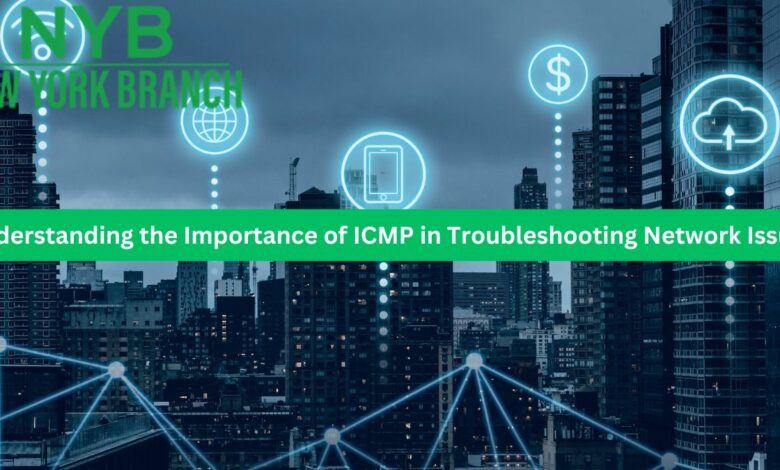Understanding the Importance of ICMP in Troubleshooting Network Issues

Within the intricate web of digital communication, network performance is paramount. The Internet Control Message Protocol, or, is at the heart of maintaining this efficiency. This unsung hero of the network realm is essential for diagnosing and addressing connectivity issues that can impede or interrupt digital communication flows. As we delve into the roles and applications of ICMP, we’ll discover why it remains an essential tool for IT professionals, even as network ecosystems become increasingly complex.
Introduction to Network Protocols
Network protocols are akin to a universal language that dictates how different network devices communicate. Like codified standards, these rules and configurations are central to maintaining order and efficiency within the dynamic field of digital exchanges. From ensuring data packets are correctly sent and received to managing network traffic, these protocols are the unsung heroes of the digital world, working silently behind the scenes to facilitate seamless communication and information exchange.
Unpacking the Internet Control Message Protocol (ICMP)
ICMP operates within the Internet Protocol Suite, a crucial set of communications standards that govern Internet activity. The protocol’s primary role is to send error messages and operational information indicating success or failure when data communication encounters a problem, used by network devices like routers and switches, functions as a diagnostic tool to report problems such as unreachable network destinations—instead of simply discarding packets with issues, network devices use to send an explanation of what happened to the source IP, thus providing a mechanism for error handling.
ICMP’s Role in Network Diagnostics and Error Reporting
Diagnosing network problems is critical to network management, and is a crucial player in this process. The protocol communicates error messages, such as destination unreachable or time exceeded, which helps network administrators understand and troubleshoot connectivity issues. These error reports are crucial for maintaining network health and ensuring data packets reach their destinations most efficiently.
How ICMP Facilitates Connectivity and Transmission Control
As data traverses networks, it may encounter traffic congestion or other issues that affect its delivery. ICMP assists in managing this by providing feedback to the data source, prompting necessary adjustments to improve data transfer efficiency. It directly contributes to controlling and managing data flow, helping prevent network congestion and facilitate efficient communication. Through this feedback mechanism, contributes to dynamic adjustments in the network, enabling it to react and adapt to changing conditions in real time.
The Different Types of ICMP Messages and Their Functions
ICMP provides two primary types of messages: error-reporting messages and query messages. Error-reporting messages inform of problems encountered during the processing of IP packets. In contrast, query messages determine the status of hosts on a network or the route packets take to their destination. This classification serves to streamline the process of identifying and addressing network health issues. While error-reporting messages are reactive to issues, query messages can be seen as proactive network maintenance and management steps.
Beyond Basic Pings: Advanced Uses of ICMP
Th protocol is often associated with the ping command, which tests the reachability of a networked device. However, its utility extends much further. Among the advanced uses of ICMP is the traceroute utility, which provides a detailed route path that packets take to reach their destination. Traceroute uses a series of ICMP echo messages to map out each hop that the data packets travel, giving network administrators valuable insight into the route’s efficiency and identifying potential bottlenecks.
Security Implications of ICMP Traffic
While ICMP is vital for network maintenance, it can also be exploited maliciously. For instance, ICMP can be used in Denial-of-Service (DoS) and reconnaissance attacks. Because of these security concerns, ICMP traffic is often carefully monitored and managed within networked environments. Network security professionals must understand how to configure network devices to handle
properly to mitigate potential threats while preserving its diagnostic utility.
ICMP in Modern Networks: Still Relevant?
Despite new protocols and complex network architectures emerging, remains a cornerstone for network diagnostics. Its simplicity and effectiveness guarantee that continues to play a significant role in any network administrator’s toolkit. The protocol’s ability to quickly identify connectivity issues makes it indispensable in maintaining efficient network operation, especially when quick resolution of network issues is critical.
Comparing ICMP with Other Diagnostic Protocols
Although various network diagnostic tools and protocols exist holds a unique place. Its simplicity and the immediacy of its feedback are unparalleled, making it an invaluable protocol for network troubleshooting. is universally supported and understood compared to other diagnostic protocols, making it a common foundation for network diagnostics.
Future of ICMP: Evolutions and Expected Changes in the Protocol
Just as the internet continues to evolve, so must the protocols underpinning its operation. future likely holds further adaptations to accommodate networks’ increasing complexity and scale, ensuring its ongoing relevance in network management. One can expect to continue to play a vital role, adapting to keep pace with the future demands of network troubleshooting and diagnostics.
Conclusion: The Enduring Legacy of ICMP in Network Management
ICMP’s importance in networking is not merely a technical detail; it’s a testament to the robust nature of internet protocols that have supported the growth and stability of global digital communication for decades. Understanding and its continued application allows network professionals to effectively diagnose and manage network health. It exemplifies the internet’s capacity to adapt, survive, and thrive amid an ever-changing technological landscape.This article is a comprehensive overview inspired by the detailed information provided by Fortinet. For technical insights, TechTarget’s resource can offer ICMP’s technical overview while trends and expectations in network certifications, which include understanding foundational protocols like ICMP.



